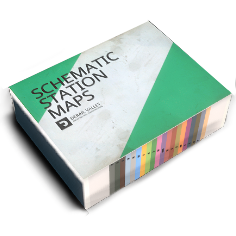Body Damage/nl: Difference between revisions
Updating to match new version of source page |
Updating to match new version of source page |
||
| (One intermediate revision by the same user not shown) | |||
| Line 5: | Line 5: | ||
<div lang="en" dir="ltr" class="mw-content-ltr"> | <div lang="en" dir="ltr" class="mw-content-ltr"> | ||
Most common situations in which collision damage occurs is due to {{pll|Derailing|derailing}}, distracted {{pll|Shunting|shunting}}, badly set up {{pll|Switches & Switch Signs|switches}} and {{pll|Wheelslide|wheelslide}}. Body damage can also be caused by various {{pll|Powertrain Overheating|powertrain failures}} that cause parts to fly apart, {{pll|Flammable|fire}} and even {{pll|Explosive|explosions}}. | Most common situations in which collision damage occurs is due to {{pll|Derailing|derailing}}, distracted {{pll|Shunting|shunting}}, badly set up {{pll|Switches & Switch Signs|switches}} and {{pll|Wheelslide|wheelslide}}. Body damage can also be caused by various {{pll|Powertrain Overheating|powertrain failures}} that cause parts to fly apart, as well as {{pll|Flammable|fire}} and even {{pll|Explosive|explosions}}. | ||
</div> | </div> | ||
| Line 13: | Line 13: | ||
<div lang="en" dir="ltr" class="mw-content-ltr"> | <div lang="en" dir="ltr" class="mw-content-ltr"> | ||
To ensure safe contact between vehicles, it is recommended not | To ensure safe contact between vehicles, it is recommended to not come in contact at more than 5 km/h. To help anticipate contact better, there are {{pll|Proximity Sensor|proximity sensor gadgets}}. | ||
</div> | </div> | ||
| Line 21: | Line 21: | ||
<div lang="en" dir="ltr" class="mw-content-ltr"> | <div lang="en" dir="ltr" class="mw-content-ltr"> | ||
Damaged vehicle bodies can be {{pll|Servicing Overview|serviced}}. | |||
</div> | </div> | ||
<div lang="en" dir="ltr" class="mw-content-ltr"> | <div lang="en" dir="ltr" class="mw-content-ltr"> | ||
{{pll|Cars & Cargo Damage|Cars and cargo}} can be damaged from collisions too. | |||
</div> | |||
<div lang="en" dir="ltr" class="mw-content-ltr"> | |||
Body damage can be inflicted manually in {{pll|Sandbox|sandbox mode}}, using the {{pll|Comms Radio Cheat Modes|comms radio damage mode}}. | |||
</div> | </div> | ||
[[Category:Servicing|4]] | [[Category:Servicing|4]] | ||
Latest revision as of 21:34, 17 March 2025
De carrosserie van een spoorvoertuig kan beschadigd raken door botsingen, hard rangeren, ernstige defecten aan de aandrijving waardoor onderdelen uit elkaar vliegen, brand en zelfs explosies. Schade aan het carrosserie kan leiden tot het uitvallen van elektrische systemen waaronder meldlampen, ruitenwissers en andere elektrische functies. Het heeft verder geen invloed op het vermogen van een voertuig.
Most common situations in which collision damage occurs is due to derailing, distracted shunting, badly set up switches and wheelslide. Body damage can also be caused by various powertrain failures that cause parts to fly apart, as well as fire and even explosions.
Damage to a vehicle's body may result in failure of various accessories, such as windows, lights and compressors. It doesn't otherwise affect the moving capability of a vehicle, however.
To ensure safe contact between vehicles, it is recommended to not come in contact at more than 5 km/h. To help anticipate contact better, there are proximity sensor gadgets.
Body damage of a vehicle is displayed on its ID plate.
Damaged vehicle bodies can be serviced.
Cars and cargo can be damaged from collisions too.
Body damage can be inflicted manually in sandbox mode, using the comms radio damage mode.
